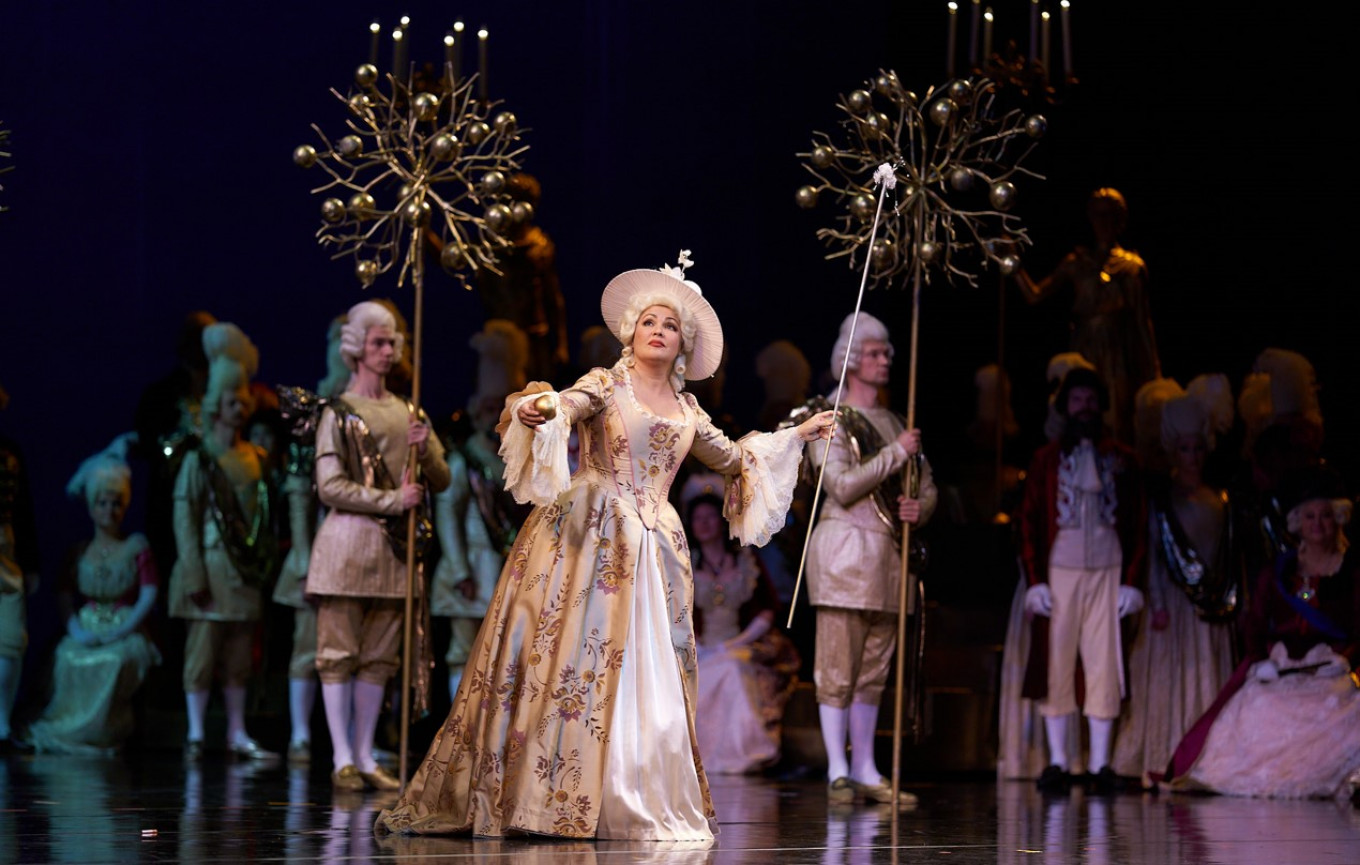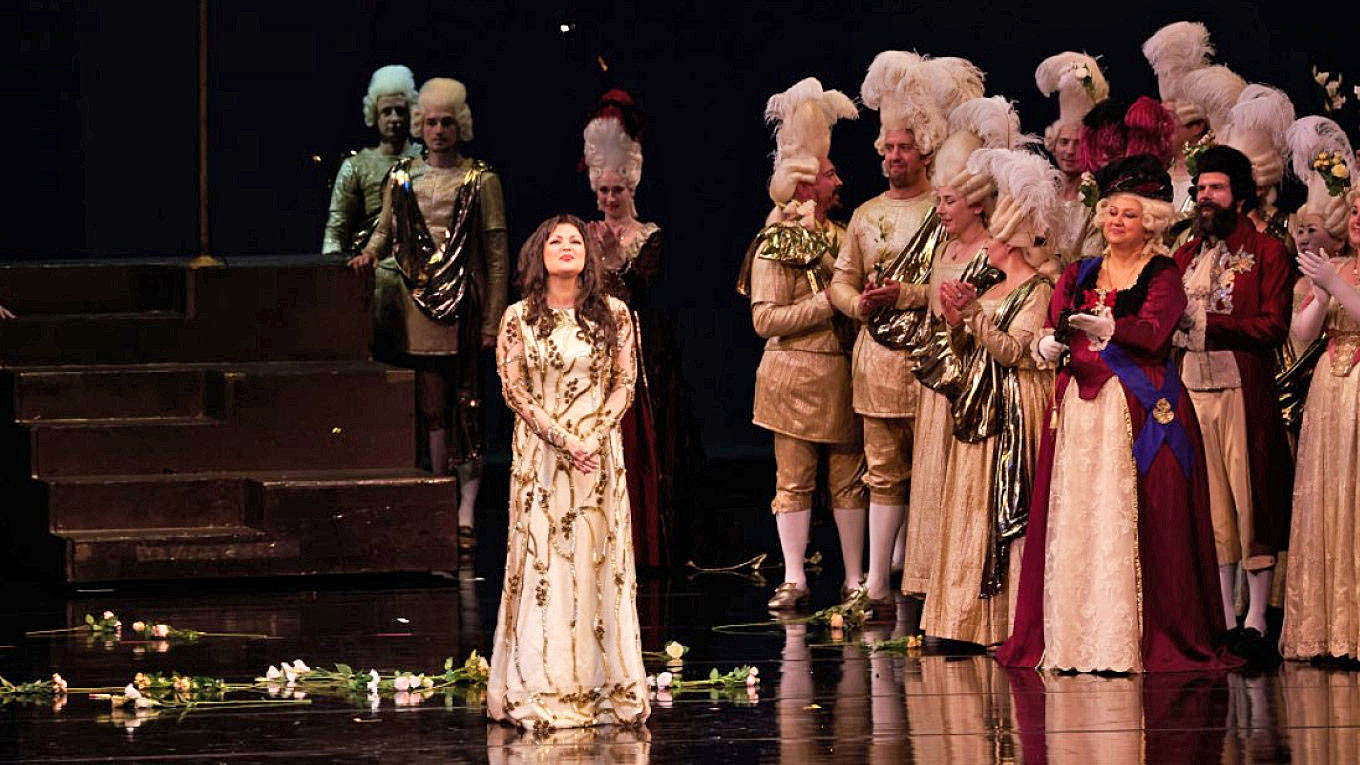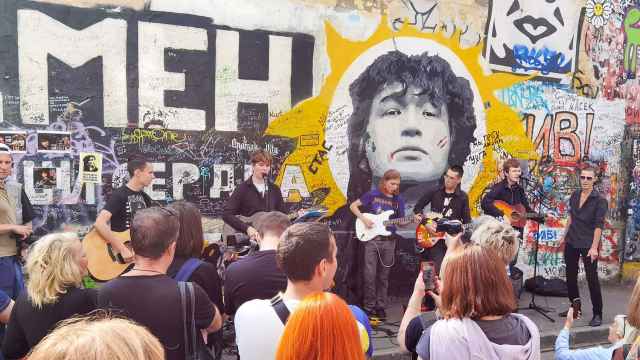The Mariinsky Theater is truly home for celebrated opera singer Anna Netrebko. It is the stage where she has performed dozens of roles in hundreds of productions since she was invited by Valery Gergiev to join the company in 1993. Her alma mater – the St. Petersburg Conservatory – is just across the street, flanked by statues of Mikhail Glinka and Nikolai Rimsky-Korsakov. Fittingly, among Netrebko’s first big successes were the roles of Ludmila in Glinka’s “Ruslan and Ludmila” and Marfa in Rimsky-Korsakov’s “The Tsar’s Bride.”
And so, it is no wonder that Netrebko decided to celebrate her 50th birthday with a concert at the Mariinsky that paid homage to her previous roles — and perhaps hinted at a new repertoire for the future.

From a children’s choir to the world’s finest opera houses
Anna Netrebko was born in Krasnodar and sang in the Pioneers of Kuban children’s choir. After graduating from the St. Petersburg Conservatory and winning the Glinka Competition of Vocalists in 1993, she quickly rose to fame. After debuting at San Francisco Opera in 1995, she went on to add the Metropolitan Opera and Salzburg Festival to her successes. By 2003 she had appeared at Covent Garden, Los Angeles Opera and Bayerische Staatsoper.
She has been in high demand all over the world, with a voice that has developed from a lyrical to a dramatic soprano in recent years. She is always temperamental, stately, expressive, and charismatic, with a very recognizable stage presence.
Her jubilee concert at the Mariinsky was just one in a series of acclaimed recent performances when cultural life started up again after the first pandemic lockdown. Netrebko opened the show as the stately French actress Adriana Lecouvreur from Francesco Cilea’s eponymous opera, perhaps an indication of how she saw herself on the world’s stages. The first act of the evening included selections from Donizetti’s “L'elisir d'amore” and an extract from the role of Gilda in Verdi’s “Rigoletto.”
The second act began with Netrebko as Leonora in Verdi’s “Il Trovatore” and continued with a fully staged scene from Puccini’s “La bohème,” where the soprano sparkled as Musetta. And the evening finished with what might be called a triple business proposal for her future work with the theater: Netrebko appeared in three roles in the theater’s current production of Tchaikovsky’s “The Queen of Spades.” First she appeared as Prilepa and sang in the pastoral scene ‘Sincerity of a Shepherd.” Then she changed into a different costume and sang the role of Liza. And at the end she was center stage as a sumptuous Catherine the Great. While Netrebko changed costumes, the audience was treated to sublime vocal interludes by Alexei Markov, Yevgeny Akimov and Vladislav Sulimsky. The evening also featured slide shows of Netrebko’s personal history in St. Petersburg and the Mariinsky.
In performances that were semi-staged (for operas no longer in running at the Mariinsky) or fully staged (current productions), Netrebko’s showcased a repertoire that ranged from the betrayed Gilda to capricious Adina, from frivolous and bare-legged Musetta jumping on tables to innocent Prilepa finding her first (albeit farcical) love. Sometimes her singing was excellent and exceeded all expectations; sometimes she showed a bit more artistry and emotion than perfect renditions. And if the level of audience adulation was at times slightly over the top, Netrebko was eager to surprise and please all evening. Her stage partners, especially the elegant and eloquent Alexei Markov and powerful Vladislav Sulimsky, made the soprano star feel truly at home at the Mariinsky.
At the end of the evening, the audience left with the hope that she’ll once again sing regularly in Russian opera houses — and that she will be as adventurous in her role choices as she was when her fantastical series of costume changes in “The Queen of Spades” made everyone in the hall gasp.
A Message from The Moscow Times:
Dear readers,
We are facing unprecedented challenges. Russia's Prosecutor General's Office has designated The Moscow Times as an "undesirable" organization, criminalizing our work and putting our staff at risk of prosecution. This follows our earlier unjust labeling as a "foreign agent."
These actions are direct attempts to silence independent journalism in Russia. The authorities claim our work "discredits the decisions of the Russian leadership." We see things differently: we strive to provide accurate, unbiased reporting on Russia.
We, the journalists of The Moscow Times, refuse to be silenced. But to continue our work, we need your help.
Your support, no matter how small, makes a world of difference. If you can, please support us monthly starting from just $2. It's quick to set up, and every contribution makes a significant impact.
By supporting The Moscow Times, you're defending open, independent journalism in the face of repression. Thank you for standing with us.
Remind me later.







